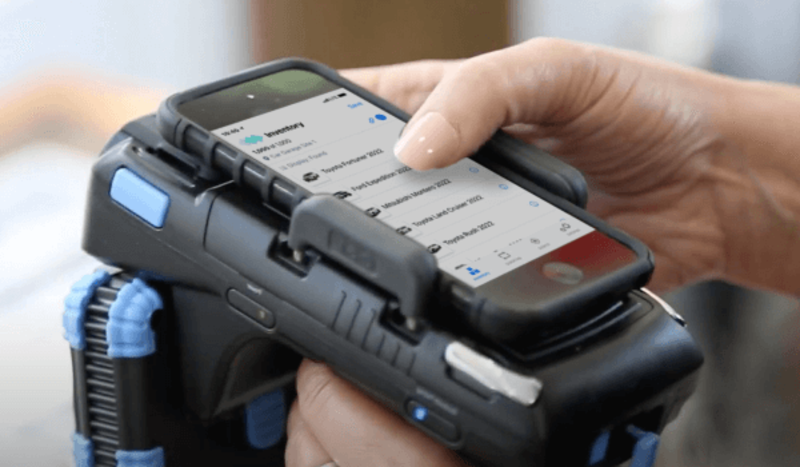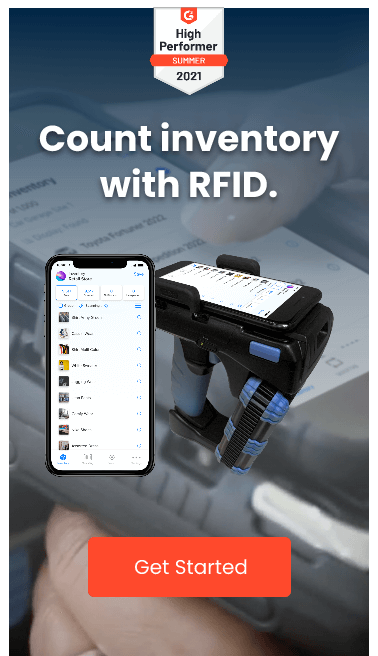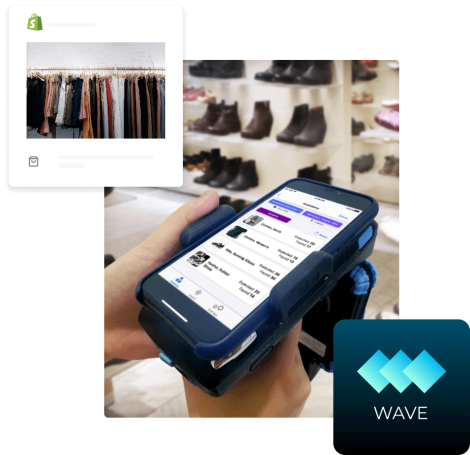Choosing the Right RFID Inventory Management System for Your Business

One of the most crucial components of any business is inventory control. You can decide what to produce and how to satisfy customer demand more effectively if you keep track of what you have and where it is. The secret to efficient inventory control is keeping precise records of incoming and outgoing stock. Previously, this was frequently carried out manually, which could be laborious and prone to mistakes. Modern businesses are increasingly using RFID technology to automate the inventory management process. Here is what you need to know if you're thinking about implementing an RFID inventory management system or looking into RFID tags for inventory, what you should know is provided below.
What is inventory management using RFID technology?
A tool that tracks and manages inventory with real-time updates is known as an RFID inventory management system. RFID tags are used in this system. RFID readers, RFID tags, and an RFID software application are the three parts that make up the system. The items being tracked have RFID labels with unique identifiers attached to them. This is done for inventory management. The software application serves as a database to track and manage the data gathered from the RFID readers, which communicate with the tags using radio waves.
Fixed readers are typically positioned around the perimeter of the area being monitored, though RFID handheld scanners may be used in some situations. The reader detects the signal from the RFID tag when an inventory item is moved and updates the software program accordingly. Due to this, warehouse workers no longer need to rely on manual counts or barcodes to keep track of their inventory in real-time.
The Benefits of RFID in Inventory Management
Let's explore the features that RFID inventory management systems offer in greater detail now that you are aware of their distinctive components, such as RFID tags for inventory. Compared to conventional systems, these systems have a number of advantages, including:
Reduced labor costs: One of the main advantages of RFID is that it can automate a lot of inventory management-related tasks, such as counting and tracking. Employees can now concentrate on other tasks, lowering labor costs.
Enhanced Accuracy: By removing potential human error, RFID inventory management systems can also help to enhance accuracy. This is so that errors that can happen when inventory is managed manually are less likely to occur because the system is automated. Businesses can decide on production, purchasing, and pricing with precision when they know the inventory levels. Without accurate data, companies run the risk of making decisions that result in excess inventory, lost sales, and ultimately financial loss.
Real-Time Updates: RFID solutions are able to provide real-time updates on inventory levels, which are crucial for efficient decision-making, order fulfillment, and positive customer experiences. Being able to track individual items and determine when and where they were last seen using tags can also help to reduce shrinkage.
Increase in inventory visibility: It’s possible thanks to RFID tags for inventory management, which can be read without direct line of sight. As a result, items in a warehouse can be scanned even if they are hidden beneath other objects. It is now much easier to track items as they move through the supply chain and to have much greater visibility into the inventory.
Durability: RFID tags are frequently more robust than barcodes for inventory management, decreasing the likelihood that they will sustain damage or become unreadable. As a result, fewer manual inventory checks may be necessary, and inventory counts may be more accurate.
Counting Multiple Tags: Compared to barcode scanners, RFID readers can simultaneously and at a much greater distance scan multiple tags. This is an important consideration because it has the potential to speed up the inventory management process and make tracking inventory easier and more affordable, even in large warehouses.
In general, RFID inventory management systems are superior to conventional barcode-based and manual systems in a number of ways, making them the perfect option for companies looking to streamline their inventory and warehouse management procedures.

RFID Inventory Management Systems: Potential Pitfalls
While there are many benefits to using RFID tags and technology for inventory management, there are also some potential disadvantages that should be taken into account. These comprise:
Privacy Issues: One potential problem with RFID inventory management systems is that they might give rise to privacy issues. This is because the technology allows for the tracking of people's and objects' movements, which some people may find intrusive.
Interference: Other electronics, including microwaves and cell phones, may cause RFID tags used for inventory management to malfunction. This may reduce the technology's dependability and compromise its accuracy.
Infrastructure Needed: In order for some RFID inventory management systems to function properly, a specific infrastructure is needed. This covers elements like power, networking, and device space. This presents a problem for some companies and might restrict the application of RFID technology.
RFID inventory management systems can be advantageous for businesses despite any potential drawbacks. Businesses should consider the costs and benefits of implementing an RFID system before deciding if the technology is appropriate for them.
Choosing an RFID inventory management system that is appropriate for your business
Systems for RFID inventory management can be a great way to increase the precision and effectiveness of your inventory management procedure. However, there are a few things to think about before deciding to use RFID tags or an RFID system for inventory management.
One thing you need to consider is the size and design of your facility. Large buildings with a linear layout, like factories or warehouses, are where RFID systems perform best. You might want to think about a different kind of inventory management system if your facility is smaller or more complicated.
The kind of inventory you need to track must also be taken into account. If you need to keep track of a lot of things, especially tiny or challenging-to-track things.
It's crucial to take into account the kind of inventory you need to track. RFID might be a good choice if you need to track a lot of items, or if the items are small or challenging to scan. However, barcodes might be a better option if you only need to track a small number of items or items that are big and simple to scan.
The appropriateness of RFID for your needs must also be considered. Other technologies exist for inventory management in addition to RFID systems. NFC tags, GPS tracking, QR codes, and conventional barcode systems are additional options to take into account. Tracking expensive goods with long lifespans is where RFID systems excel. Another technology might be more suitable if you need to track items with a lower value or a shorter lifespan. And finally, choosing the right RFID vendor is crucial for a successful implementation. The RFID company you select ought to be capable of offering you the assistance you require to ensure successful deployment and ought to have experience putting systems into place in your sector.
Weighing the costs and benefits is crucial when deciding whether to implement an RFID inventory management system. But not every business should use RFID to enhance their inventory management procedures. When making a choice, take into account your facility's size and layout, the kinds of things you need to track, and your spending limit. An RFID system can assist in elevating your inventory management with the right planning and preparation.
Still unsure if RFID for inventory may be right for meeting your needs? Feel free to reach out and Simplyrfid would be happy to help you determine the best solution for your business.
About SimplyRFID
Learn more about obtaining accurate inventory counts and positively impacting all areas of business. Visit www.simplyrfid.com for details or contact Eric Richmond, Director of Client Services or our Support Team for more information.


